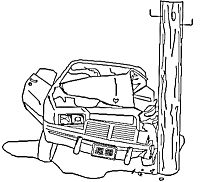 Regrettably, I don’t get many opportunities to travel the A9. The occasional jolly to Inverness is interspersed with jaunts to Pitlochry, and maybe even the Pitlochry Festival Theatre if I’m lucky.
Regrettably, I don’t get many opportunities to travel the A9. The occasional jolly to Inverness is interspersed with jaunts to Pitlochry, and maybe even the Pitlochry Festival Theatre if I’m lucky.
That means I don’t know the road well enough to have it memorised, nor have I ever encountered any bad driving, either during or at times other than the holiday/tourist season – at least, not any worse than encountered anywhere else around the country. To be honest, the changing scenery and conditions means I have always found it to be quite an enjoyable drive, and not deserving of the reputation painted by the media.
I mention this only because there are roads I have travelled on regularly – and given the abysmal ‘production-line’ driver training on offer nowadays, which I would suggest is geared towards training candidates how to pass the driving test, rather than how to drive – which surprise me not to have piles of unwary drivers’ cars piled up by the roadside.
As we approach the end of 2011, I find it appalling and bordering on the incompetent and irresponsible that anyone holding a position of authority with respect to road safety would be so ignorant to utter the words “There’s no such thing as a dangerous roads… ”
It’s such an irresponsible statement, if I was in a position to do so, I would call for their immediate resignation.
This used to be a handy phrase to spout some years ago, and transfer responsibility for road safety from an authority to the individual drivers, and those who died in accidents and could not reply, but is simply not acceptable in 2011. It comes from the same mindset that claims “She was asking for it” as some sort of acceptable defence for rape.
It is now known as fact, rather than conjecture, that there are numerous contributions to accidents and fatalities on roads, especially A-roads, built in the days when no-one had any idea that they were actually building-in hazards as they just followed the lie of the land when building roads and junctions.
There are also many modern hazards added to them, and which local authorities and the police to not want to be held responsible for. Many councils no longer trim hedges, so bends which once had visibility are now blind. Signs are obscured, hidden, dirty, inappropriate, and lacking in maintenance. Road markings are worn away and not repainted. Road verges are repaired with inferior material, leading to soft verges, yet lorry axles loads are increased. Junctions are now badly sited as traffic volumes increase, and vehicles travel at speeds faster than horse-carts, requiring to changed to slip roads and over or underpasses, or other safer alternative.
Assistant chief constable Angela Wilson, of Tayside Police, said: “In my professional view it’s not a dangerous road at all.
“There’s no such thing as a dangerous road. It’s the drivers that don’t drive to the conditions of the road. Drivers just do not give it the respect it needs.
“I’m really glad of the announcement there are going to be road improvements because that will help but actually drivers themselves are the people that need to change their behaviour.”
via Bad drivers blamed for A9’s reputation as Scotland’s ‘deadliest’ road | Dundee and Tayside | STV News.
If Assistant Chief Constable Angela Wilson, of Tayside Police, does not change her views and attitudes, then Tayside Police should be looking for someone better suited to the post.
It is fortuitous that the Scottish Government has pledged to dual the entire stretch between Perth and Inverness by 2025 – no-one looking after the traffic on the road would appear to be going to do anything to help improve its safety.
Background reading
For further information on roads see:
EuroRAP :: European Road Assessment Programme :: Safer Roads Save Lives
The BBC’s Today programme reviewed this assessment:
BBC – Radio 4 – Today – Britain’s Most Dangerous Roads
Britain’s Most Dangerous Roads
The biggest study ever undertaken on the safety of Europe’s roads has identified the most dangerous major road in Britain as the A889 near Dalwhinnie in the Scottish Highlands.
Following 18 months of work, the AA-led EuroRAP (European Road Assessment Programme) has given safety ‘star ratings’ to more than 800 A or trunk UK roads, and a further 2,000 in three other countries – the Netherlands, Sweden and Spain.
The league tables are intended to allow highways authorities and engineers to compare similar roads and identify the hidden killers among them.
…
Hopefully, this information will allow designers to make changes to lessen the risk of the four major killers – head on crashes, accidents at junctions, collisions with vulnerable road users such as pedestrians and cyclists, and vehicles hitting objects at the side of the road.
…
John Dawson, AA Policy Director and EuroRAP Chairman: “We have to make roads more forgiving – everyday human error shouldn’t carry a death sentence. People should not be dying on major routes because basic protection is absent from entirely predictable collisions, such as with unfenced roadside objects.
Unfortunately not available on the iPlayer, the BBC broadcast a series of programmes under the title Britain’s Killer Roads (broadcast during 2011), which attempted to educate those responsible that proper analysis of roads could show where the simplistic approach of blaming the drivers or drivers’ behaviour. It also showed the effect of addressing relatively simple measure that modified such roads, and removed or reduced the hazards.
In these exercises, no-one claims that drivers are never to blame, but they are trying to educate those responsible for roads to see past this simplistic assumption, and understand that accidents and fatalities are happening in places where there is no ‘bad driving’ (by whatever definition) taking place. And for these deaths and injuries to continue, there is no real excuse.
West Fife killer road in national spotlight / Dunfermline Press / News / Roundup
The ‘Driver is always to blame’ approach reminds me of some safety work we did some years ago.
In Europe, we build safety systems around dangerous machinery. These guards stop errant operators placing limbs inside machinery and having them chopped off.
More importantly, they stop the machinery if someone collapses, or trips, and falls into the machinery.
When we first tried to sell these to nations such as Japan, they weren’t interested – the polite response was “We do not need such things. We issue an instruction to staff not to place their hands in machinery, and they always follow instructions”.
When we asked them how they told staff not to fall into machinery if they took ill and collapsed, or perhaps tripped or were unconscious… communications broke down for some time. The managers could not initially understand our strange concept of workers not following instructions.
We persevered, avoided being thrown out for our strange views, and eventually convinced them to fit guards.
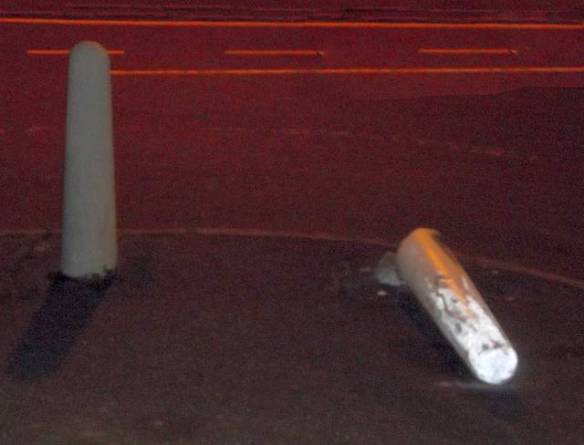

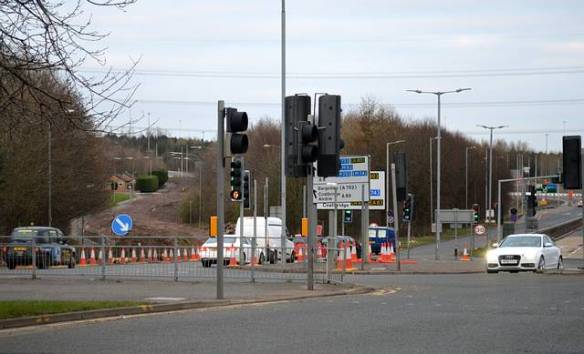
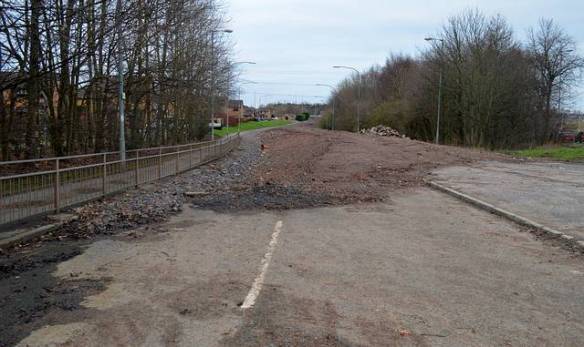
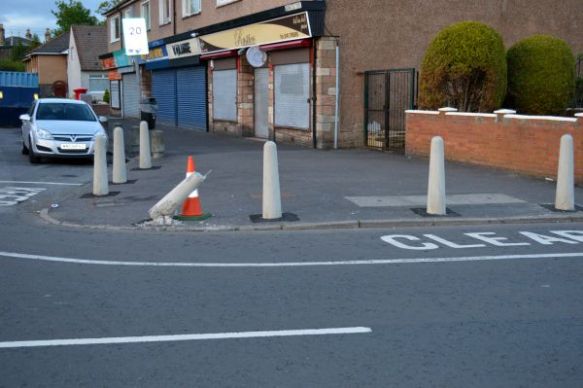
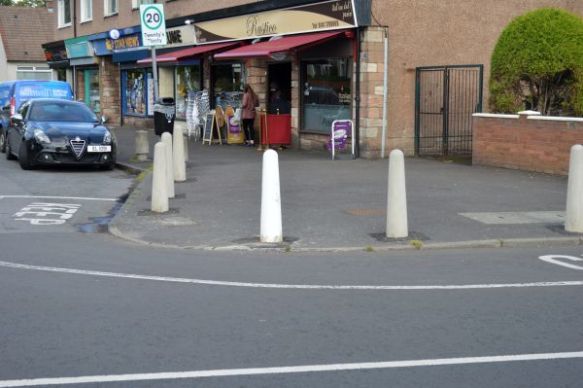
 It’s been a while since I referred to a
It’s been a while since I referred to a 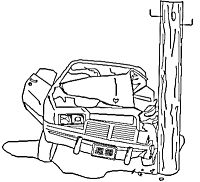 Please see the ‘Update’ below, which confirms this charge was refunded together with a “sincere and unreserved apology”.
Please see the ‘Update’ below, which confirms this charge was refunded together with a “sincere and unreserved apology”.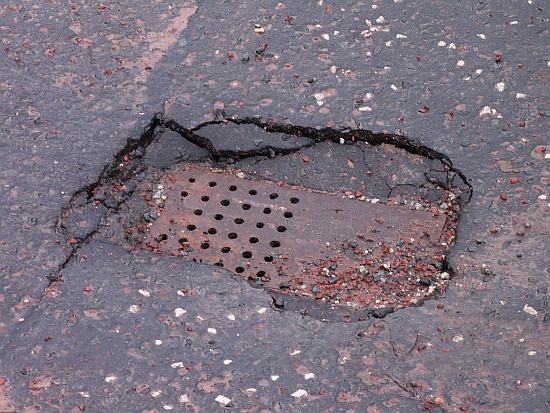
 I used to follow the various stories regarding transport issues, particularly in Argyll and Bute, because they related to the roads and ferries I was likely to be driving on and sailing in.
I used to follow the various stories regarding transport issues, particularly in Argyll and Bute, because they related to the roads and ferries I was likely to be driving on and sailing in.